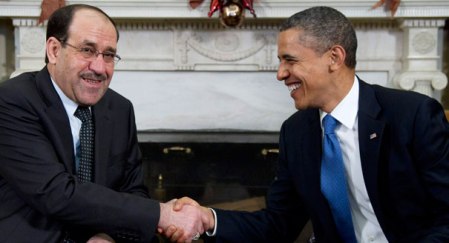
I was looking at CounterPunch the other day, and I noticed an article by Eugene Schulman entitled “What Heidegger Hysteria Tells Us About the Press”. This piqued my curiosity, so I read it. The article turned out to be only tangentially about Heidegger. It’s main argument is that the New York Times is pro-Israel. (The late Alexander Cockburn made this point about ten million times. I guess Schulman must be new to CounterPunch.) I did find one passage interesting:
In a recent article published at the Veterans Today website controversial author of “The Wandering Who?”, Gilad Atzmon, takes to task The Guardian newspaper for an article criticizing the publication of Martin Heidegger’s ‘black notebooks’. Heidegger was one of the 20th Century’s most famous philosophers, almost best known for having joined the Nazi party during the war years [Heidegger joined the Nazi Party in 1933] and, thus, gaining the reputation for being anti-Semitic.
I guess that’s what happens when you join the Nazi Party. Anyway, the article provides a link to Veterans Today (which I had never heard of before). I must guiltily confess that I gave in to my morbid sense of curiosity and clicked on it. VT calls itself a “Military & Foreign Affairs Journal”, and it tells us that it has been serving “Military & Veterans for 40+ Years”. Among other things, it provides job listings for veterans and information for how veterans can get loans. Atzmon’s article is titled “The Banality Of The Guardian Of Judea”. In it, he defends Heidegger from the accusation of anti-Semitism. I found this passage particularly interesting:
Heidegger was a German patriot. As such he knew very well that it was Zionist leadership and German Jewish bankers in America that facilitated the entry of the USA into the first world war (in return in part for the 1917’s Belfour Declaration that promised a national home for Jews in Palestine). In that regard, Heidegger, like his contemporaries, had good reason to believe that Germany was betrayed by its Jewish elite.
There you have it: the “stabbed in the back” lie, dusted off and presented to American military veterans.
My morbid sense of curiosity was now in overdrive. I searched around the VT website. I found out that VT is big on 9/11 conspiracy theories. (One recent article is titled “Malaysian plane disappearance linked to 9/11”). They like Vladimir Putin a lot. I also found an article by someone named Jonas E. Alexis titled “Hitler and Germany’s Sexual Question (Part II)”. It’s a rambling, somewhat confusing article, but it makes clear that Alexis doesn’t care much for Weimar Germany:
Theater in Germany began to produce films such as The Cabinet of Dr. Caligari (1920), directed and written by Jewish producers Robert Wiene and Hans Janowitz. This particular film was teleological in nature: it was supposed to hypnotize audiences in an expressionist and psychoanalytic form.
Other films of the same genre included Carl Mayer’s The Last Laugh (1924), Fritz Lang’s Metropolis (1927), Madchen in Uniform (1931), and Kuhle Wampe (1932).[14] Madchen in Uniform was an explicitly pro-lesbian film, something that was completely contrary to the Prussian education system at the time, and many of the cast in the movie were Jewish.
Yes, we’ve got to point out those Jews, don’t we? Alexis adds:
Madchen in Uniform became a symbol for feminist movements in the 1970s, one of the weapons used against the existing culture. Moreover, Jewish film directors and producers, like many current Jewish directors in Hollywood (Eli Roth and David Cronenberg come to mind), knew that they were indirectly changing the social and cultural mode of Germany.
Huh? Do Roth and Cronenberg have a time machine? Later on, Alexis writes:
This anger [Hitler’s] began to escalate after World War I when he [Hitler] saw what was happening in the press and theatre in Germany, when art in general was being used to denigrate the German culture.
What perhaps moved Hitler’s anger to a new height was that the Jews were less than three percent of the population, yet they largely controlled the theatre and were promoting what he would call “filth” and “pornography.”
For Hitler, these acts “must have been definitely intentional.” Moreover, he got first-hand knowledge after World War I that pornography was almost exclusively a Jewish phenomenon.
It’s interesting to note that Alexis is black. I wonder if Alexis has ever done any research on Hitler’s views on blacks. (Another black contributor to VT is H. K. Edgerton. VT tells us that he does “Confederate street preaching for the South”.)
I looked at the page listing the editorial board for VT. They list as a board member, Lt. General Hamid Gul, who, they claim, is “Director General ISI (Former Chief of Intelligence Services, Pakistan)”. About another board member, we are told:
Gordon Duff is an accredited diplomat and is generally accepted as one of the top global intelligence specialists. He manages the world’s largest private intelligence organization and regularly consults with governments challenged by security issues.
I bet. I noticed that one of VT’s Iran bureau chiefs just happens to be none other than our old friend, Ismail Salami. (Small world, isn’t it?) One frequent contributor to VT is Franklin Lamb, who is also a frequent contributor to CounterPunch.
According to Quantcast.com, Veterans Today receives a little more than 377,000 views a month in the U.S. That is close to the number of views that CounterPunch receives each month (386,400). It is substantially more than the number of views that Dissident Voice, which also posts articles by Atzmon and Salami, receives (35,600).
I’m not sure what exactly to make of these numbers, but one thing clear to me is that Gilad Atzmon has found a warm, welcoming, safe space.









